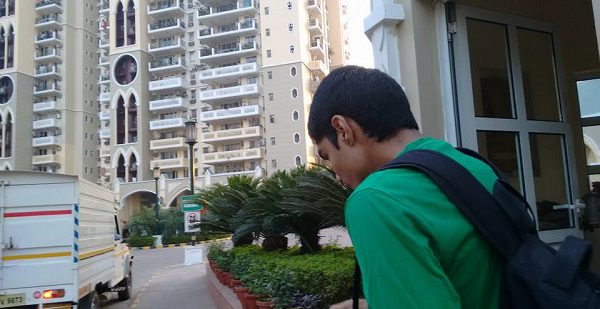
It seems like every day is a “Designated Day,” marked so as to draw awareness to a cause, illness, culture, group of people or what have you. Sometimes they scroll by so fast on my news feed that I miss things, like December 3 was World Disability Day. What does that mean? World Disability Day? According to Daysoftheyear.com:
Disability Day, or the International Day of People with Disability, is a day that has been promoted by the United Nations since 1992. The aim of Disability Day is to encourage a better understanding of people affected by a disability, together with helping to make people more aware of the rights, dignity and welfare of disabled people, as well as raise awareness about the benefits of integrating disabled persons into every aspect of life, from economic, to political, to social and cultural. Disability Day is not concerned exclusively with either mental or physical disabilities, but rather encompasses all known disabilities, from Autism to Down Syndrome to Multiple Sclerosis.
The annual observance of World Disability Day, also known as the International Day of Disabled Persons, was proclaimed by the United Nations General Assembly resolution 47/3 in 1992, with the theme for 2015 being “Inclusion Matters: Access and Empowerment for People for of all Abilities.” Under that theme, sub-themes are:
- Making cities inclusive and accessible for all
- Improving disability data and statistics
- Including persons with invisible disabilities in society and development
There is a lot more great information about disability and global sustainability goals here at the UN Enable Programme.
The more I read up on World Disability Day, the more admiration I had for the thought and attention put into the development of this awareness program and subsequent initiatives by the United Nations. But, when you start from the top and move it on down the very people we are talking about, those are the stories that resonate with me most — how have things changed/improved/not improved for those living with developmental, physical, intellectual and all sorts of other disabilities? What access to they have? What support system are in place?? How well are those who are trying to help actually listening to the population who needs the help?
How much of this is being driven by those living with disabilities? It is their lives we are talking about. And, for those for whom self-advocacy is much more difficult if not near impossible, how are their loved ones and care givers utilizing what is around to foster as much independence and quality of life as possible? I’m thinking about these things in every post I write about my son’s and our family’s autism journey.
But, today I want to share with you something my friend, Madhusudan Srinivas, India-based senior news editor for NDTV, wrote, which originally appeared ahead of his participation in a discussion on World Disability Day on BBC Hindi. Madhusudan and his wife Subha are parents to 22-year-old Abhimanyu, a vibrant, joyful autistic man. What Madhu Bhai wrote, as much as it speaks to autism and disability life in India, it speaks to autism and disability life everywhere. It’s as much about D as it is about Abhimanyu.
Writes Madhusudan on Facebook,
… this bit of writing has also ended up being a kind of soul-searching, housecleaning episode for me … For those on Autism Niche, mainly young moms/parents of children on the autism spectrum. I must clarify that this is not meant to be an exercise in ‘oh nothing works, what do we do, the system sucks, lets see whether we can go off to the US or elsewhere.’ We do carry on with our daily cheery good mornings with Abhimanyu, and he listens to his music, and we worry about his future, but we don’t get into a hole about it … cheery worry, i’d like to call it.
And there’s a certain joy in the Hindi word, joojhna, which is just that little bit ahead of “tilting at a windmill.” Ladeinga kareinga … and to use that filmi one, love kay liye, kuch bhee kareingaaa (for the sake of love, we’ll do anything) — for the love of Abhimanyu.
By Madhusudan Srinivas
Abhimanyu, my son, is 22 and autistic, and we live in New Delhi, India.
He is one of those millions who will make up the statistics, the numbers, to be spouted the world over, by a range of well meaning people.
They will speak of alarm, they will speak of urgency, of things to be done, of policies to be formulated/changed, laws to be made/amended and so on.
For sure, I’m quite content to leave all that to “them.”
And it is “us” that I will talk about. How does it feel, from a parent’s point of view?
Is it all working for us. Do we have a kinder gentler world, with a better attitude toward disability than say around two decades ago, when Abhimanyu was diagnosed with autism. In the next few graphs, I will sincerely attempt a checklist, but my mind, I must confess, is already made up.
Things are a little better for some of us, than they were before. But they could be better. And it is not so much government, system whatever. It is more about you, me, us — people all around, and what we can do to pull along and help others less privileged in any way, to pull along and get ahead too.
Top of the mind checklist:
DIAGNOSIS AND COUNSELING: For any disability, whether in a general hospital, or at your fancy neighborhood polished tiles and bright paint walls clinic or hospital with exorbitant fees, the broad starting point is the same: Confusion. Bewilderment. Lack of emotional empathy. Lack of competent counseling, ie. in terms of saying, okay, the child has x, go here, do that. Bring me examples to the contrary, from across the country, and I’ll …. I don’t know what I’ll do.
DISABILITY CERTIFICATE: I haven’t dared to update Abhimanyu’s disability certificate from years ago, which essentially fetches me tax rebates (a ridiculous 80,000 rupees annually, compared to the lakhs (hundred thousands) that we spend on his therapy and other needs, that is, when we have the lakhs), and rail and air travel concessions. I don’t dare do it, ie. update the certificate, because it involves a convoluted process of visiting various sarkaari windows. And being told, go here, go there.
SCHOOLING/INSTITUTIONS: Look around you, whoever’s reading this, and tell me where you see bunches of differently abled children, studying in the same brightly painted well-painted schools that you see other children going to. Not quite visible naa? And I’m talking only of the city slickers. If this is the state in our big cities, think of rural India. I’d like to think this is more a matter of overall social attitudes, and I’d rather not blame it on government alone.
LAW AND LEGAL FRAMEWORKS: Apart from looking at Abhimanyu’s schooling and therapy, and our long terms plans for him, I also have to stand alongside the entire autistic community and the disability community, and fight against many many lacunae in the legal framework, which are essentially for welfare benefits ranging from health and insurance covers, to concessions in train and air fares, to basic accessibility issues. And access here means not just the popular notions of ramps for the wheelchair-bound, but access in its broadest sense — for the physically challenged as well as those profoundly challenged mentally.
Very often, everyone, especially the politicians and the babus, are content with patting themselves on the back after distributing a few wheelchairs or inaugurating a new ramp facility, whereas for the large majority of the differently abled, access is about finding proper schooling and vocations, and homes to live in.
My homework, I must admit, is not complete, or absolutely thorough. There are many many other aspects of the life of the differently abled that need to be covered for a SWOT analysis on world disability day.
I’d rather leave it here, and look for the larger message for us, that is “our” community, now, today.
Autism is the metaphor, disability is the generality that we’re talking about here. The nomenclature has changed, it has veered toward the politically more correct “different ability,” “different needs,” “special needs.”
Has the change in nomenclature, or reference terms, meant a sea change in attitudes?
In absolute terms, the numbers of people who are “different,” who are autistic, or differently abled, have grown and grown, with increasing awareness and diagnosis.
There is an overhang of a mismatch between the two basic issues – the growing numbers and the services available from the state/government.
But is that what my day to life is all about? To some extent yes, but not entirely, thank God.
Each day, for us, is like a start-up: To find that new idea, impulse, that will help us push this boy a little further.
My life is about finding that emotional strength, to plug away at various aspects of Abhimanyu’s learning of basic life skills — finding him the push to get up and get going each day, from waking to the daily morning routine, to bathing and dressing, and school or a work routine (at some point).
It is about finding the emotional stamina, once back from work, to make him venture out into the immediate neighborhood for a stroll, a walk, a trip to the grocers, the fruit or vegetable seller, the rickshaw, the auto, the bus, the metro. Or maybe just cross the busy metro station, past the crowded hospital nearby so that he learns a little more about negotiating people and crowds.
So that we work towards a distant future where he can be as independent as possible, as can be.
And to think of support structures – friends, families, institutions – which can be built toward that distant day when we’re not there for him.
What a jumble of thoughts, you are probably thinking. Yes, it is a jumble of thoughts, that’s exactly my state of mind, I’m juggling my job, my son’s present and his future. And thinking of World Disability Day, is just that — a blip on my screen. Stock taking for those in positions of decision making yes, but for us parents, just another day , to get on with it.











